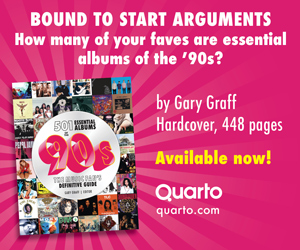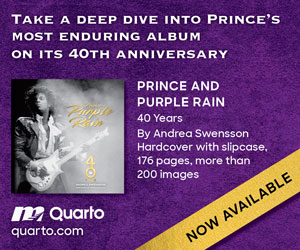REMEMBERING CHRIS CORNELL – A SPILL MAGAZINE MEMORIAL
(July 20, 1964~May 17, 2017)
Chris Cornell, the lead singer best known for his work fronting grunge pioneers Soundgarden and super groups, the likes of Audioslave and Temple Of The Dog, has passed away at the age of 52. Cornell was found dead in his hotel room in Detroit following a Soundgarden set at the city’s Fox Theater. His cause of death has been declared as a suicide.
When looking at the life, career, and music of Cornell, often people’s thoughts gravitate towards Soundgarden. Justifiably, this was a crucial period of Cornell’s career as it was his first band to break big and create a cultural defining discography; however, his work is among the most versatile amongst rock musicians. This tribute will touch on all the major points of his career and look at the larger significance that is left in his legacy.
Originating in Seattle, Soundgarden was signed to Sub Pop Records in 1987, about one year before Nirvana. While Seattle was most definitely a booming cultural scene in the 1980’s and 90’s, and like any boom such as the grunge movement- as it was later named- it is impossible to determine who started the grunge trend first. Despite that, Soundgarden was one of the first grunge band to make it by being signed to a label. Their early work, including songs like “Hunted Down” (off the Screaming Life EP) and their cover of The Ohio Players’ “Fopp” (off EP of the same name) captured the grunge ethos that was haunting, dark, and aggressive.

It wasn’t until 1991 that Soundgarden would become a national force with the release of Badmotorfinger, an album which gave classic rock and 80’s metal a grungy face-lift. While bands like Nirvana and Pearl Jam (to some extent) were trying to hide their inspiration to artists from the 1960’s and 70’s, Soundgarden openly embraced their love for punk, classic rock, and metal on Badmotorfinger. Soundgarden presented themselves as a band that could stand beside Led Zeppelin for the similarities that can be made for both bands’ ability to deliver larger than life guitar riffs and roaring vocals on one song, and follow it up with an emotional and melodic song. On Badmotorfinger, there was no hiding the influence that The Ramones, The Stooges, Black Sabbath, Aerosmith, and Led Zeppelin had left on the band; rather, Cornell embraced these.
Soundgarden would then release what is arguably their strongest album, Superunknown (1994) an album that further combined the bombastic hard rock of their previous material with softer and more experimental songs. This resulted in “Black Hole Sun”, Soundgarden’s biggest hit and most obvious foray into psychedelia and one of the strongest power ballads of the decade. The album channeled some of the overt rage found on Badmotorfinger into what can be described as a more melancholic, creative, and artistic record.
This continued into 1996’s Down On The Upside, a record that continued to see Soundgarden dive into uncharted creative directions, but found a striking balance between melancholy and rage. Sadly, this record would be the beginning of the end for Soundgarden. The recording of the album was a tumultuous process and members had clashed over song writing decisions and the departure from the bands earlier style. Tensions grew during the subsequent tour which erupted in a frustrating concert in Honolulu, Hawaii, which led to Soundgarden breaking up.
Soundgarden was certainly a heavy band and among their peers in the Seattle grunge scene, the varying tones and styles found within their five albums demonstrated them as a far more versatile band with a higher caliber of musicianship that many bands intentionally avoided in favour of a conscious sloppiness. They were also among the heaviest grunge act to emerge early on in the scene. That being said, Cornell’s career with other projects displayed a level of versatility that is absent from even the most revered of legends.

Taking a step back to 1990, Cornell fronted Temple Of The Dog, a band created with future Pearl Jam members Mike McCready, Jeff Ament, and Stone Gossard, along with Soundgarden drummer Matt Cameron to honor the death of Andrew Wood who died of a heroin overdose earlier that year. Wood, along with Gossard and Ament was a member of the proto-grunge band Mother Love Bone and was an integral part to the Seattle cultural boom of the 1980’s. Temple Of The Dog’s self-titled and sole record stands as a tribute to Wood and was only supposed to be one song, “Say Hello To Heaven”, released as a single, but the band hit a groove that would have been artistically wrong to ignore, and the world was much better for it. Temple Of The Dog is an incredibly emotional album that touches on grunge, but displays a softer side than what people were accustomed to hearing from Cornell. The music was emotionally charged with an emphasis on creating rich melodies and Cornell’s voice took a smoother and softer quality than he had ever recorded with Soundgarden. The album also featured Eddie Vedder on the hit “Hunger Strike” which directly led to the creation of Perl Jam following the conclusion of the record.
Following the disbanding of Soundgarden, Cornell began working on his quintessential solo record, Euphoria Morning (later changed to Euphoria Mourning on a 2015 reissue). This record was Cornell at his most artistic and experimental. Thematically, it was also him at one of his lowest points, something that is very well communicated through the lyrics and the tone of the album. The music on Euphoria Mourning dances from alternative and soft rock, jazzy ballads and experimental tracks that play with techniques often found in jazz, funk, soul, and rock and is an incredible testament to the song writing sophistication and depth Cornell had.
In 2002, along with former Rage Against The Machine members Tom Morello, Brad Wilks, and Tim Commerford, Cornell formed Audioslave, one of the best super groups ever. Their debut, self-titled record shook the rock would by combining the effect driven rock of RATM with a melodic vocal approach. Vocally, Cornell combined softer vocals heard on Euphoria Mourning with an aggressive growl heard more with Soundgarden to give Audioslave the added pop to their punch. All three of their albums, Audioslave (2002), Out Of Exile (2005) and Revelations (2006) were met with much praise from critics and fans alike.
Following the conclusion with Audioslave, Cornell continued to work on his solo career. In 2009, he released Carry On, a straight up rock record which featured “You Know My Name”, the theme song for Casino Royale, a cover of Michael Jackson’s classic “Billie Jean”, and delivered a far more impressive rendition of the song, capturing an emotional depth that was absent from the original, despite the heavy content of the lyrics. He then followed this up with the often forgotten Scream, a pop record that was recorded with Timberland. While the album is nowhere near his best work, it is important to note that Cornell only sang on the record and has no writing contributions accredited to him.

In 2010, much to everyone’s surprise, Soundgarden reunited, appearing at festivals and eventually making a full reunion tour before releasing King Animal in 2012. The reunion saw Chris once again taking the position as one of the most powerful singers of hard rock, despite how his voice had aged in the previous twelve years. In many ways, King Animal picked up seamlessly from where the band left off in the 90’s with Down On The Upside
When not working with Soundgarden, Cornell continued to pursue his solo career with solo acoustic tours in which he would tastefully adapt songs from all eras of his career. Even with just his voice and an acoustic guitar, Cornell was able to leave audiences captivated and floored. His talent truly knew no bounds. No frills, no band; Cornell demonstrated why he was one of the strongest frontmen out there and laid his bare soul for the world to see. This was documented on the live album, Songbook in 2011 and was further explored on his studio album of a similar nature, Higher Truth. Much like his cover of “Billie Jean”, to promote the album he covered “Nothing Compares 2 U” by Prince, in yet another outstanding display of emotion through song, and dare I say, performed it even better than Prince (this coming from the guy with a Prince tattoo).
Within the last year, Cornell was continuing to extensively tour acoustically. Towards the end of 2016, for the first time ever, Temple Of The Dog toured across America in select cities in what was one of the highlights of the year’s concerts. There was also a three song Audioslave at a Prophets of Rage charity show. Soundgarden was also getting together in the studio and in 2017 commenced touring for the first time in three years. Most recently, he released “The Promise” contributing sales to The International Rescue Committee.

Looking back on his career, Chris Cornell was an artist in every form. It is easy to find one’s niche and remain in a safe place. Anyone can do that, and sometimes different incentives pose as challenges to leaving, but that never stopped Cornell from exploring different avenues, and often extremes- from one of the heaviest grunge bands with clear metal influences to solo acoustic singer-songwriter style shows. Not only was his musical ability unmatched- he had a multi-octave voice (Soundgarden’s “Beyond The Wheel”) and managed to play complex rhythm and lead lines on the guitar while singing (Soundgarden’s “Jesus Christ Pose”), as well as also knowing how to play piano and drum- but he was an incredible performer with just as versatile stage presence. Watching him live with Soundgarden was like watching a natural leader who stood tall and strong and with his mighty voice and cranked up guitar, nothing could stand in his way. At his solo shows, he created a level of intimacy as if you had caught him at a local open mic night at a coffee shop. Regardless, Cornell put it all on the line for the sake of his music and for the pursuit of his own musical curiosity, ambition, and artistry. He wrote and performed music for the love of doing so. There aren’t many musicians who could honestly say the same. His influence on advancing the grunge genre was obvious with the leaps and bounds Soundgarden was making, but Cornell was among one of the strongest influences from the 90’s on modern rock. His performance style, song writing, and artistry has certainly left a lasting mark on the direction in which modern rock has and continues to take. From his powerful voice, his unconventional and distinct song writing style, and his constant output and presence in the modern rock scene, Chris Cornell will always be remembered as one of the greatest rock musicians ever. Rest easy Chris, we’ll all miss you.











